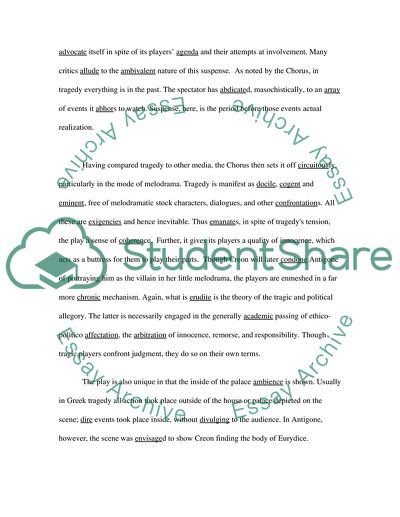Cite this document
(“The Nature of Tragedy in Antigone is Unique and Profound Essay”, n.d.)
The Nature of Tragedy in Antigone is Unique and Profound Essay. Retrieved from https://studentshare.org/social-science/1539894-vocabulary-assignment-antigone-criticism
The Nature of Tragedy in Antigone is Unique and Profound Essay. Retrieved from https://studentshare.org/social-science/1539894-vocabulary-assignment-antigone-criticism
(The Nature of Tragedy in Antigone Is Unique and Profound Essay)
The Nature of Tragedy in Antigone Is Unique and Profound Essay. https://studentshare.org/social-science/1539894-vocabulary-assignment-antigone-criticism.
The Nature of Tragedy in Antigone Is Unique and Profound Essay. https://studentshare.org/social-science/1539894-vocabulary-assignment-antigone-criticism.
“The Nature of Tragedy in Antigone Is Unique and Profound Essay”, n.d. https://studentshare.org/social-science/1539894-vocabulary-assignment-antigone-criticism.


